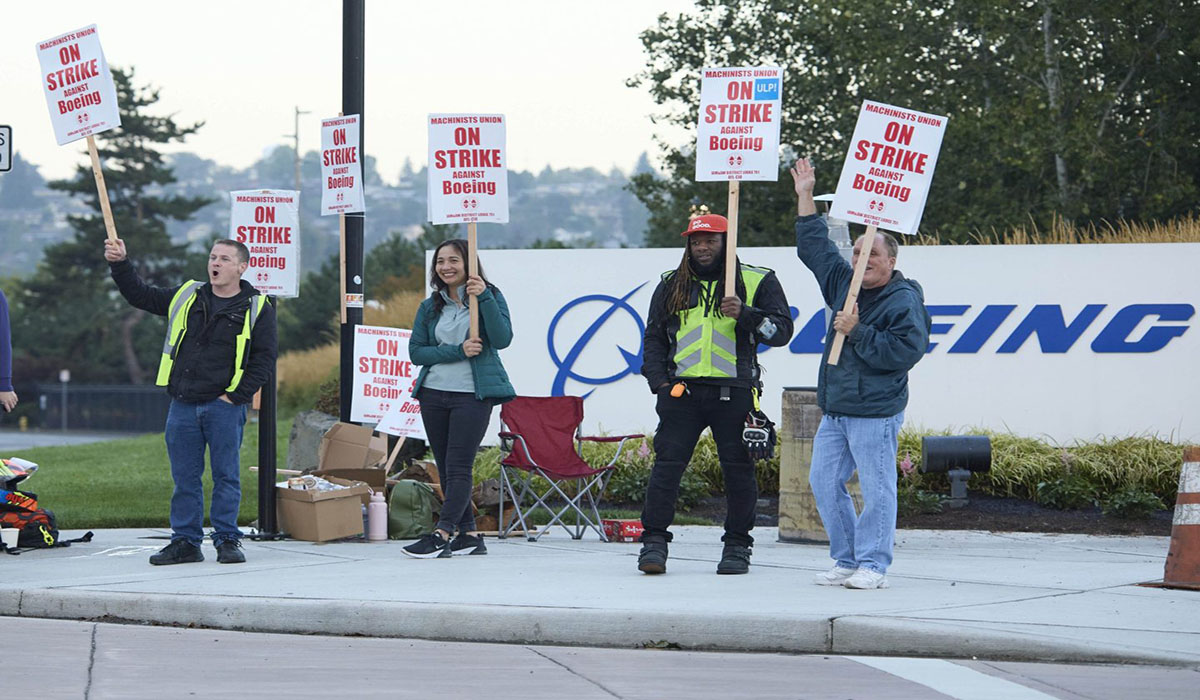Boeing’s Labor Crisis: Workers Demand Fair Pay as New CEO Faces Tough Test
More than 30,000 Boeing factory workers in Seattle, Washington, walked off their jobs after midnight on Friday, halting the production of the company’s bestselling aircrafts after staff overwhelmingly rejected a new labor contract. The company’s last major strike was in 2008 and lasted for two months.
Boeing holds roughly half of the global market share in aircraft manufacturing, alongside Airbus-European aerospace corporation
New Labor Contract Negotiations
The new labor contract, negotiated earlier in the week, included a 25% wage increase over four years and other improvements to health care and retirement benefits. However, the union had sought raises of about 40%. Workers complained that the agreement did not adequately address the increased cost of living. The workers voted 96% in favor of the strike, far exceeding the two-thirds majority required for a work stoppage.
“This is about fighting for our future,” said Jon Holden, who headed negotiations for Boeing’s largest union. He characterized the strike as an “unfair labor practice strike,” alleging that factory workers had experienced “discriminatory conduct, coercive questioning, unlawful surveillance, and unlawful promises of benefits.”
Workers have been protesting all week at Boeing factories in the Seattle area that assemble Boeing’s MAX, 777, and 767 jets. On Friday evening, members at the union hall cheered and chanted “Strike! Strike! Strike!”
Negotiations Resume Next week
The union negotiators will return to the bargaining table early next week, U.S. federal mediators said on Friday, as the two sides try to end a strike threatening the airplane maker’s turnaround. This situation presents an early test and an opportunity for Boeing’s new CEO, Kelly Ortberg, who took over just five weeks ago.
Boeing’s stock fell 3.7% on Friday and has tumbled almost 40% so far this year, reducing the company’s market value by roughly $58 billion.
Problems at Boeing
Last year, Boeing did not make a profit. In fact, the plane maker has lost money every year since 2018, following a series of deadly crashes and near-disasters that damaged its reputation and finances. Still, in 2023, the CEO received a 45% pay increase, bringing their total compensation to nearly $33 million according to media reports.
Meanwhile, wages for Boeing’s 33,000 unionized employees have remained stagnant.








